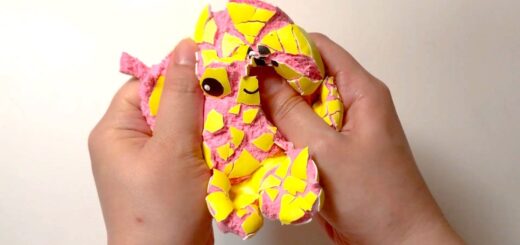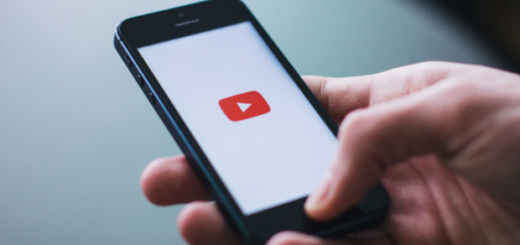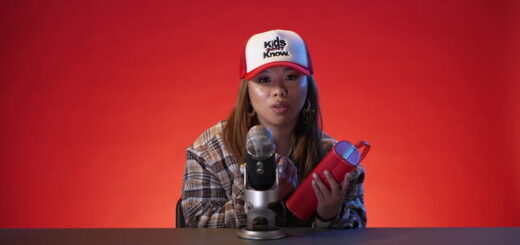‘Happier Than Ever’: Billie Eilish’s Uneasy View From the Top
[ad_1]
Billie Eilish has a voice full of secrets. She is known for rarely raising its volume higher than an ASMR-triggering whisper, but there’s also a certain taunting knowingness in its tone. Consider the withering “duh” that punctuates her breakout smash “Bad Guy” — if you don’t get it by now, she seems to be saying with an audible eye-roll, she’ll never tell.
Like her idiosyncratic fashion sense, Eilish’s hugely successful first album, “When We All Fall Asleep, Where Do We Go?” from 2019, struck a careful balance between expression and obfuscation. Sure, she and her brother, Finneas, openly discussed how they recorded it in their childhood home and culled its lyrics from the darkest corners of Eilish’s own nightmares. But she clearly delighted in keeping certain things to herself — blurring the lines between fantasy and reality, irony and sincerity, with a sinister, self-preserving wink.
On “Getting Older,” the muted, airy number that opens her second album, “Happier Than Ever,” Eilish announces that she’s entering a more candid phase. “I’ve had some trauma/Did things I didn’t wanna/Was too afraid to tell ya/But now I think it’s time,” she sings in her fluttering vibrato, accompanied just by staccato keyboard notes.
The song is a snapshot of Eilish’s psyche on the other side of her titanic, arms-full-of-Grammys fame, and its particular flavor of top-of-the-mountain ennui somehow finds the aesthetic common ground between Drake and Peggy Lee. Strangers and stalkers clamor for Eilish’s attention, which leaves her feeling more distant from the people around her. The music she used to make for fun has become a high-pressure job. “Things I once enjoyed,” she croons with an is-that-all-there-is sigh, “just keep me employed now.”
The antagonists of Eilish’s last album were stylistically macabre: demons haunting her mind and monsters lurking under her bed. “Happier Than Ever” flicks on the lights to find that the boogeymen are more banal but just as dangerous — indifferent boyfriends, parasitic hangers-on and, worst of all, the abusive older men she addresses with vitriolic disgust on the gently strummed single “Your Power”: “And you swear you didn’t know/You said you thought she was your age,” she sings. “How dare you?”
Eilish insists that not all of these songs are directly autobiographical, and it’s true that “Happier Than Ever” is not exactly a confessional. It is instead a record fixated on the tension between private and public knowledge, a social-media-era pop star’s meditation on how much candor — if any — she owes her audience. (At times, it recalls the sensual provocations of Madonna’s mid-90s era more than any other contemporary pop album; the unapologetic spoken-word manifesto “Not My Responsibility” has more than a tinge of “Human Nature.”)
Eilish’s body, her sexuality and her romantic relationships have all become targets of scrutiny as her fame has grown, and “Happier Than Ever” finds her erecting barbed boundaries around all these battle zones — if occasionally teasing the listener with a few shrewdly dropped details. “I bought a secret house when I was 17,” Eilish, now 19, sings on the serpentine “NDA.” “Had a pretty boy over but he couldn’t stay/On his way out made him sign an NDA.”
That line is at once boastful and melancholy, and its duality makes “NDA” one of the most compelling songs on the album. “Happier Than Ever” is partially a chronicle of a wildly successful, obsessively surveilled young woman trying to date and explore her desires. On the swoony ballad “Halley’s Comet,” Eilish bemoans the disconnect inherent in this workaholic lifestyle: “Halley’s comet/Comes around more than I do,” she sings. “Midnight for me is 3 a.m. for you.” Elsewhere, though, on the aptly titled “Billie Bossa Nova” or the industrial-tinged, Nine Inch Nails-esque “Oxytocin,” Eilish revels in the thrill of having to sneak around to get her kicks: “What would people say if they listen through the wall?” she intones with a menacing glint.
“Oxytocin” is one of the more up-tempo songs on this album, which isn’t exactly saying much. During its slower stretches, “Happier Than Ever” languishes. Eilish and Finneas (who produced and, along with Eilish, co-wrote every song on the album) have moved away from the minimalist beats and hip-hop influence that enlivened “When We All Fall Asleep,” opting instead for a more backward-glancing sound that references trip-hop, bossa nova and even jazzy, 1950s vocalists. It’s hardly a safe bet. Eilish is clearly not interested in simply replicating the formula that made her debut album such a world-conquering smash — and the emotional turmoil chronicled in these post-fame songs perhaps suggest why. We’ve seen her in a crown, but in its most antagonistic moments, “Happier” feels like an abdication.
The risks start to pay off, though, on the album’s strong closing stretch, beginning as the warping “NDA” segues into the brash posturing of “Therefore I Am,” one of several lukewarm singles that benefits from the surrounding context of the album. Perhaps the most surprising and promising is the closer “Male Fantasy” — an arrestingly pretty acoustic ballad that follows through with the confessionalism promised at the beginning of the record.
“Male Fantasy” shocks not because of its casual mentions of pornography and body image issues, but for how completely Eilish lets her ever-present emotional armor fall. Old friends feel like strangers, she admits in a plaintive voice. Intrusive thoughts haunt her in the car. Eilish has always had a flair for cutting deadbeat guys down to size, but here she furtively pines over the sort of heartbreaker she’s usually so adept at insulting in her songs: “I know I should but I could never hate you.”
For all her mainstream popularity and music-industry accolades, Eilish remains an inveterate rebel. “Happier Than Ever,” though, exposes both the strengths and the limitations of her preferred mode of subversion. The neon-coiffed horror-pop phenom who once filmed a video in which a tarantula crawls out of her mouth has bargained that the most shocking sophomore album move was to dye her hair bombshell blonde and refashion herself as a kind of retro-leaning pop crooner. Unfortunately, from a distance, this approach can circle back on itself and look and sound too much like the type of traditionalism she was trying so astutely to avoid.
What saves “Happier Than Ever” from the doldrums, though, is the tantalizing flashes it offers of something else. Perhaps its most exhilarating moment comes during the penultimate, title track: In the middle of the song, a politely restrained, ukulele-accompanied ditty explodes into a sky-scraping, distortion-charged power ballad. Here Eilish proves she can have it both ways. Her voice (perhaps the loudest it’s ever been on record) rises to meet the drama, and she unleashes a disarmingly earnest torrent of bottled-up grievances: “Always said you were misunderstood/Made all my moments your own/Just [expletive] leave me alone.” For a fleeting moment, she has given away all her secrets, and she sounds invigoratingly unburdened.
Billie Eilish
“Happier Than Ever”
(Darkroom/Interscope)
[ad_2]
Source by [author_name]














